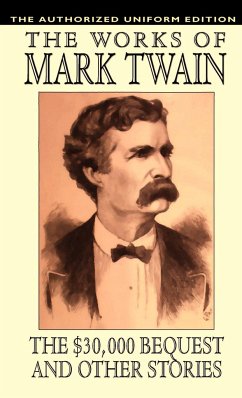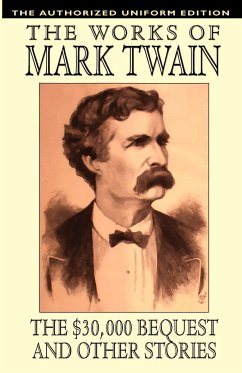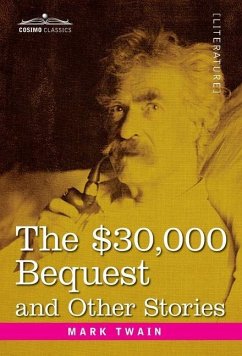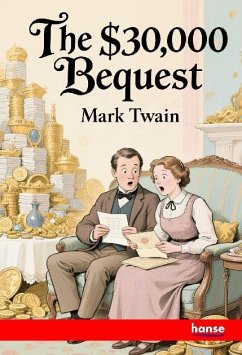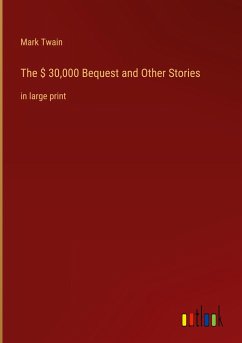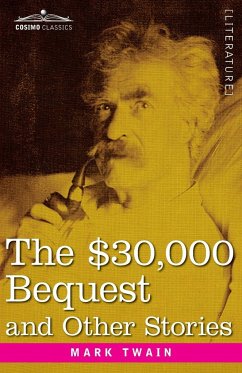
The $30,000 Bequest and Other Stories
Versandkostenfrei!
Versandfertig in 1-2 Wochen
21,99 €
inkl. MwSt.

PAYBACK Punkte
11 °P sammeln!
"Money had brought him misery, and he took his revenge upon us, who had done him no harm. He had his desire: with base and cunning calculation he left us but thirty thousand, knowing we would try to increase it, and ruin our life and break our hearts." -The $30,000 Bequest (1906) The $30,000 Bequest and Other Stories (1906) is a collection of humorous tales by Mark Twain, covering his lifelong career. The title story is classic Twain, about an old man leaving a distant relative a life-changing sum of money, only to be collected under strict terms. Other stories include A Dog's Tale, Was it Hea...
"Money had brought him misery, and he took his revenge upon us, who had done him no harm. He had his desire: with base and cunning calculation he left us but thirty thousand, knowing we would try to increase it, and ruin our life and break our hearts." -The $30,000 Bequest (1906) The $30,000 Bequest and Other Stories (1906) is a collection of humorous tales by Mark Twain, covering his lifelong career. The title story is classic Twain, about an old man leaving a distant relative a life-changing sum of money, only to be collected under strict terms. Other stories include A Dog's Tale, Was it Heaven? Or Hell?, Does the Race of Man Love a Lord? and many others. This replica of the 1907 edition of The $30,000 Bequest and Other Stories is a real treat for booklovers and fans of Mark Twain.




